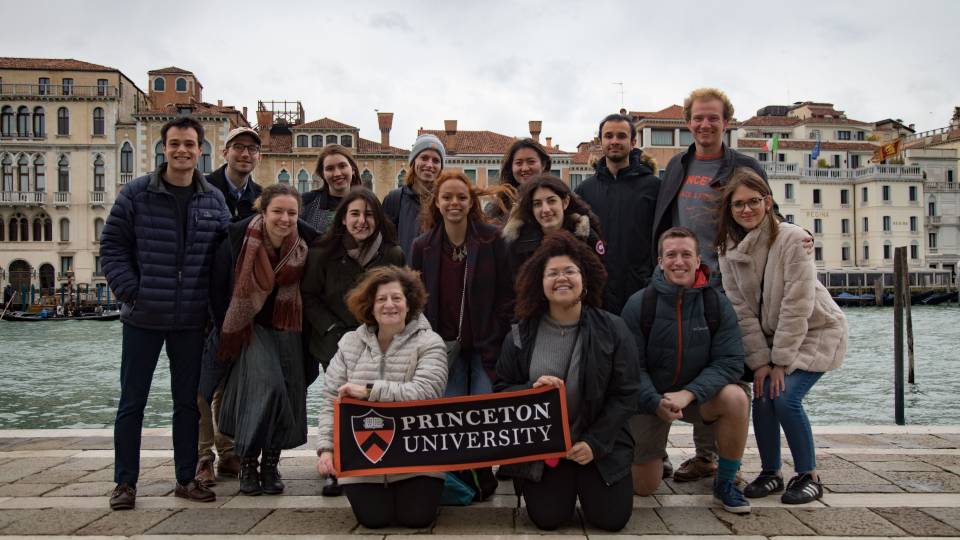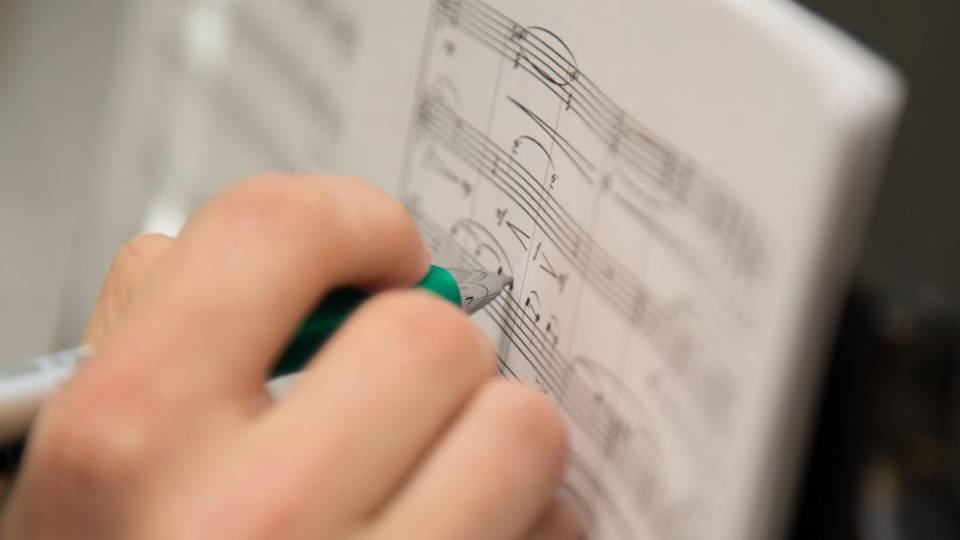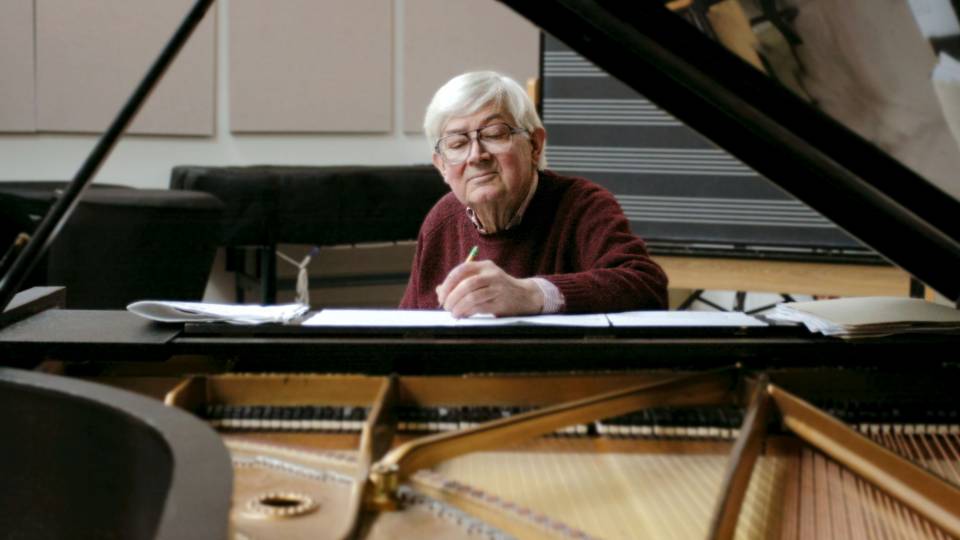Using the tips of his latex-gloved hands, Kyle Masson carefully turned the pages and examined the notations of a 300-year-old opera manuscript score at the Fondazione Ugo e Olga Levi in Venice.
Masson, a graduate student in music, had traveled to Italy to see this score by Antonio Cesti, one of only four surviving manuscripts of “L’Argia” and one that included a unique prologue that hasn’t been addressed by scholarship in the field. With his dissertation, Masson hopes to enrich understanding of the contexts in which Cesti and his music achieved success and to incorporate Cesti and his music into the broader critical discussion on opera in the 17th century.
“Venice is the birthplace, literally, of public opera, opera as we understand it today, and that begins in 1637” with the opening of the Teatro San Cassiano, a public operahouse, Masson said. “This score likely stems from a performance in the 1660s or early 1670s, when Cesti’s music was triumphantly reintroduced to Venice but also significantly altered to suit Venetian tastes.”
Said Masson, “As soon as you start to sing the music of this era and engage with the rhetoric, with the poetry, with the lyricism, it really just starts to come alive,” Masson said.
Masson said Wendy Heller, chair of Princeton’s music department and the Scheide Professor of Music History, was instrumental in arranging his visit to the Levi foundation. He has also conducted research on Cesti in Austria through the American Musicological Society, the University’s Program in European Cultural Studies and the Princeton Institute for International and Regional Studies.
“Being able to study, use scholarship, use these analytical techniques to bring these words back, which is just a fascinating thing to me — I find it very rewarding,” he said.




